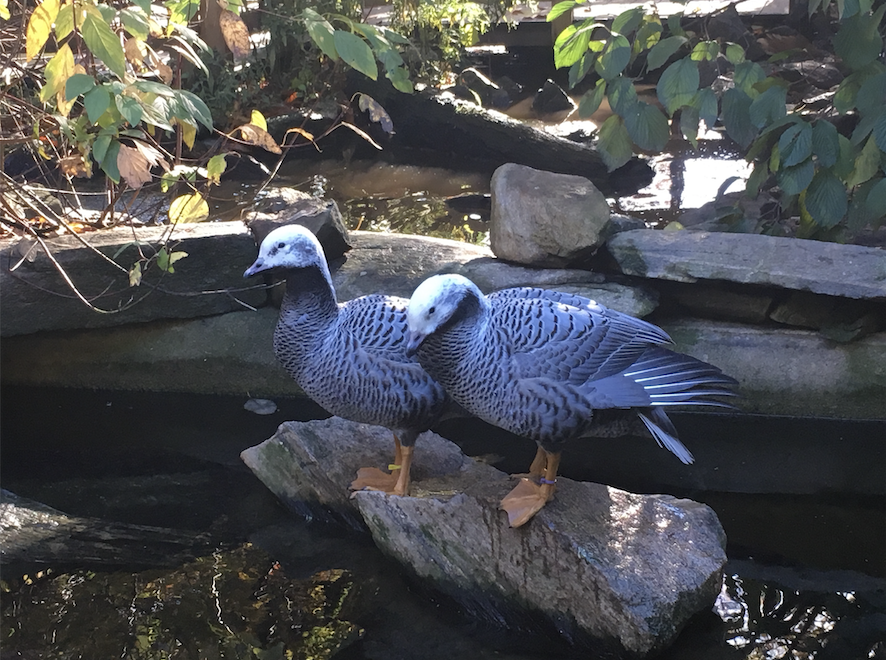
BRIDGEPORT, Conn. – Connecticut’s Beardsley Zoo is the new home for a pair of Emperor geese (Anser canagicus) who recently joined other feathered friends in the outdoor aviary. The male and female pair arrived from the Woodland Park Zoo in Seattle, Wash. in late September, and after a brief quarantine period (required for all new arrivals), took up residence in their new habitat. Both were hatched in June 2018.
Emperor geese, near threatened in the wild, are native to Alaska, the Bering Sea and parts of Russia. They are commonly found on tundras, treeless arctic regions, in the summer. They winter on rocky shores and mudflats within ten miles of seacoasts, near sloughs and rivers affected by tides. Emperor geese feed on seaweed, eel grass, sea lettuce, algae, grasses and sedges, as well as mollusks and crustaceans found in intertidal areas. They have a unique call when startled.
“Over the last four decades, there has been major biodiversity loss around the world,” said Gregg Dancho, zoo director. “Part of our mission of conservation and education is to demonstrate the amazing variety and diversity in nature to educate and delight our guests. Our colorful and unusual birds help fill that bill.”
The Zoo is home to many varieties of waterfowl in the family Anatidae, comprising ducks, geese, and swans. Some of the Zoo’s other species includes the Duclair duck, Muscovy duck, Wood duck, Redhead duck, Mallard duck, Northern pintail duck, Ringed Teal duck, Fulvous Whistling duck, Greylag goose, Cackling goose, Sebastopol goose, and Tundra swan.
More about Emperor Geese
Emperor geese may mate for life. They typically nest on a small island in a pond, or on a raised hummock or shoreline, surrounded by vegetation. The nest is a shallow scrape lined with dead plant material. The causes for the decline in their population are not well understood, but are thought to include hunting and oil pollution in nesting areas. As a coastal breeder in the far north, the Emperor goose is probably very vulnerable to the effects of climate change. The oldest recorded Emperor goose was a female, at least 20 years old when she was found in Alaska in 2013. She had been banded in 1994.
About Connecticut’s Beardsley Zoo
Spend the day a world away! Connecticut's only zoo, celebrating its 96thanniversary, features 300 animals representing primarily North and South American species. Visitors won't want to miss our Amur (Siberian) tigers and tiger yearlings, Amur leopards, Brazilian ocelot, Red wolves, and Golden Lion tamarins. Other highlights include our new Natt Family Red Panda Habitat, South American rainforest with free-flight aviary, the prairie dog exhibit with "pop-up" viewing areas, the New England Farmyard with goats, pigs, and other barnyard critters, plus the hoofstock trail featuring bison, deer, and more. Guests can grab a bite at the Peacock Café, eat in the Picnic Grove, and enjoy a ride on our colorful carousel. For more information, visit beardsleyzoo.org.